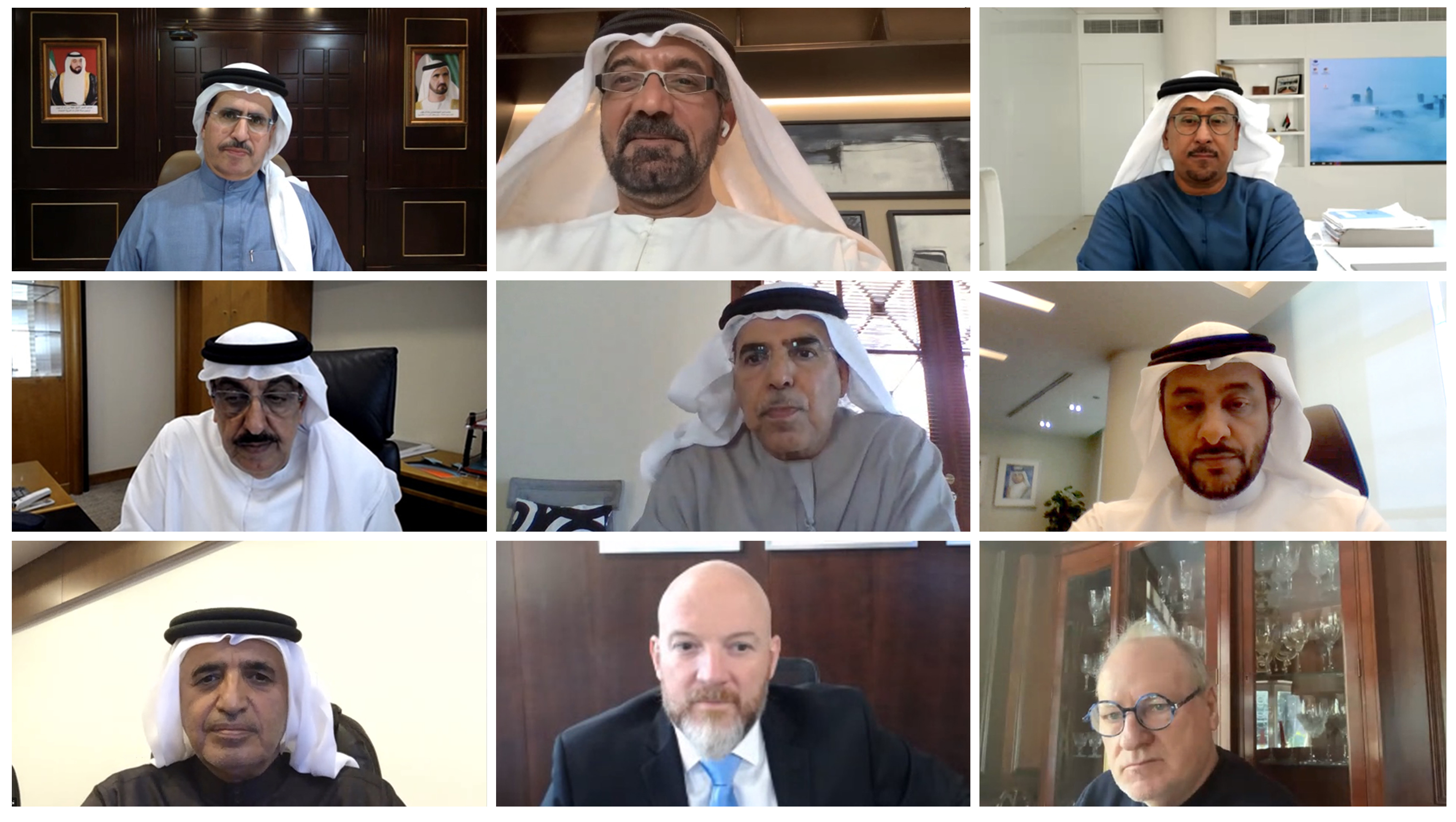
Dubai, UAE, 31 January 2021: HH Sheikh Ahmed bin Saeed Al Maktoum, Chairman of the Dubai Supreme Council of Energy, chaired the Council’s 63rd meeting held remotely.
HE Saeed Mohammed Al Tayer, Vice Chairman of the Dubai Supreme Council of Energy, attended the meeting.
HE Ahmed Buti Al Muhairbi, Secretary-General of the Supreme Council of Energy, attended the meeting along with the board members. These included: HE Dawood Al Hajiri, Director General of Dubai Municipality; HE Abdulla bin Kalban, Managing Director of Emirates Global Aluminium (EGA); HE Saif Humaid Al Falasi, CEO of Emirates National Oil Company (ENOC); Nasser Abu Shehab, CEO of the Strategy & Corporate Governance Sector at the Roads & Transport Authority (RTA); and Frederick Chemin, General Manager of Dubai Petroleum.
The meeting discussed several topics including the precautionary measures taken by EGA against COVID-19 and the Council’s decision to reduce fuel surcharge for electricity and water starting from 1 December 2020. The meeting also reviewed progress on Dubai Municipality’s Waste to Energy project to treat solid waste using direct burning technologies to generate thermal energy and convert it into clean electrical energy for export to the grid. The plant has the highest thermal efficiency in solid waste treatment, which achieves Dubai’s strategies.
The meeting discussed supporting the production of green aluminium in Dubai. “In line with the vision of His Highness Sheikh Mohammed bin Rashid Al Maktoum, Vice President and Prime Minister of the UAE and Ruler of Dubai, to achieve a low-carbon economy, the green aluminium initiative is the first of its kind in the world to produce aluminium using solar power in the Emirates Global Aluminium (EGA) operations. DEWA will supply electricity from the Mohammed bin Rashid Al Maktoum Solar Park. This project supports the competitiveness of EGA in the global market. Aluminium produced from solar power is an important element and ideal for industrial uses. We expect this product to have an added market value, as it supports our efforts to reduce carbon emissions and promote sustainable development in the UAE,” said Al Tayer.
The Council discussed the increase in the clean and renewable energy share in Dubai’s energy mix. The clean energy share has reached 9% which exceeds the target of the Dubai Clean Energy Strategy 2050 to provide 7% of Dubai’s total power capacity from clean energy sources by 2020 and 75% by 2050. The Council’s decision to reduce fuel surcharge for electricity and water enhances Dubai’s position in providing electricity and water services with globally competitive rates. It also highlights the wise leadership’s efforts to provide a decent life for Dubai residents, in light of the savings achieved in fuel consumption due to the increase in solar energy production.
Al Tayer said that the main direction of energy in Dubai aligns with the wise leadership’s directives to expand clean energy projects and increase the use of the Fourth Industrial Revolution technologies, digitisation, promoting world-class infrastructure, the highest standards of reliability, efficiency, and availability, accelerating investments in disruptive technologies, advanced R&D, smart grids, energy storage, Internet of Things (IoT), Artificial Intelligence (AI), energy efficiency, cybersecurity, robots, and strengthening Emirati capacity.
“The meeting reviewed the Waste to Energy project’s progress, which is expected to treat 5,500 tonnes of Dubai Municipality’s daily waste and produce 200MW of electricity by 2023,” said Al Muhairbi.